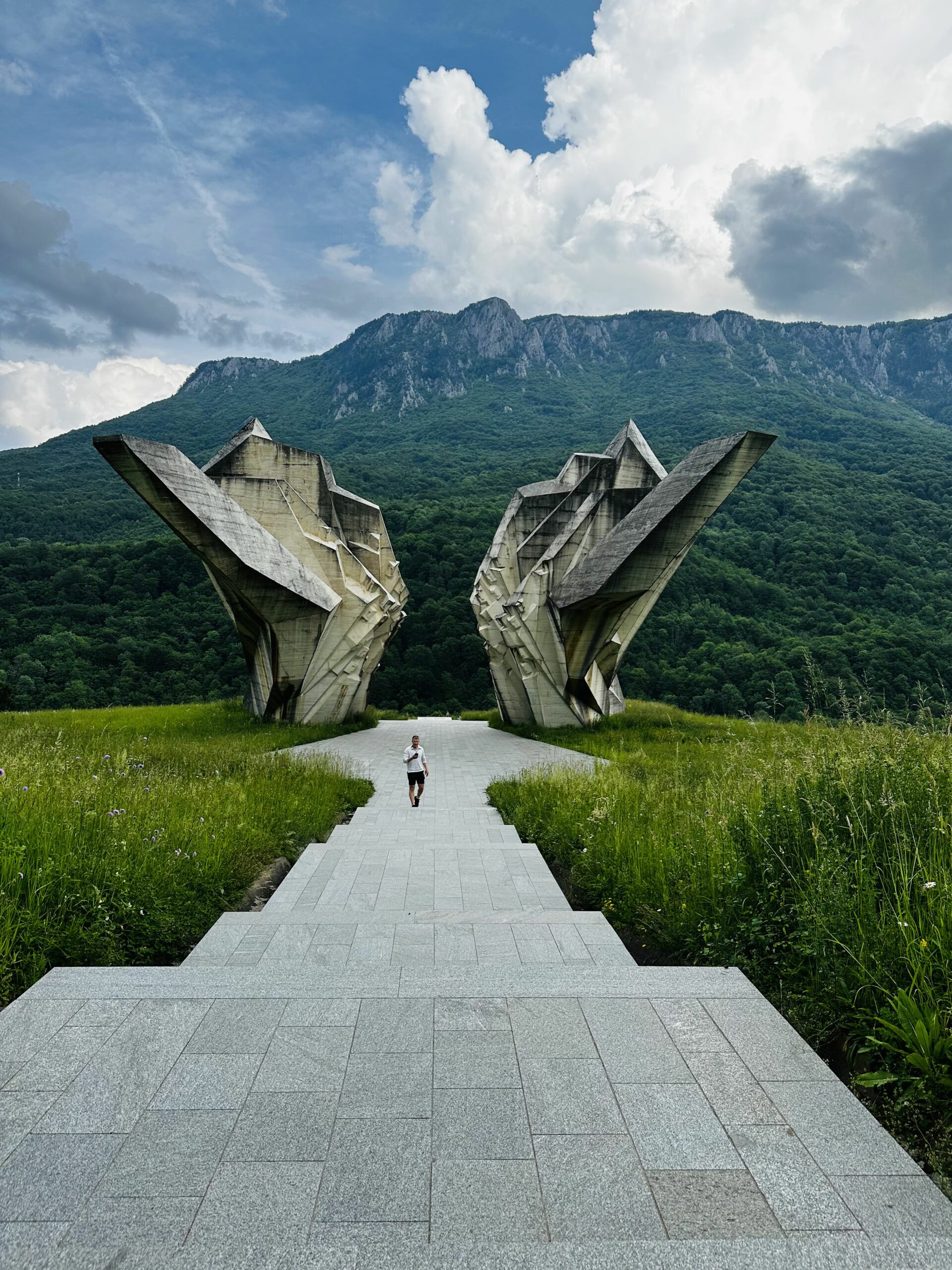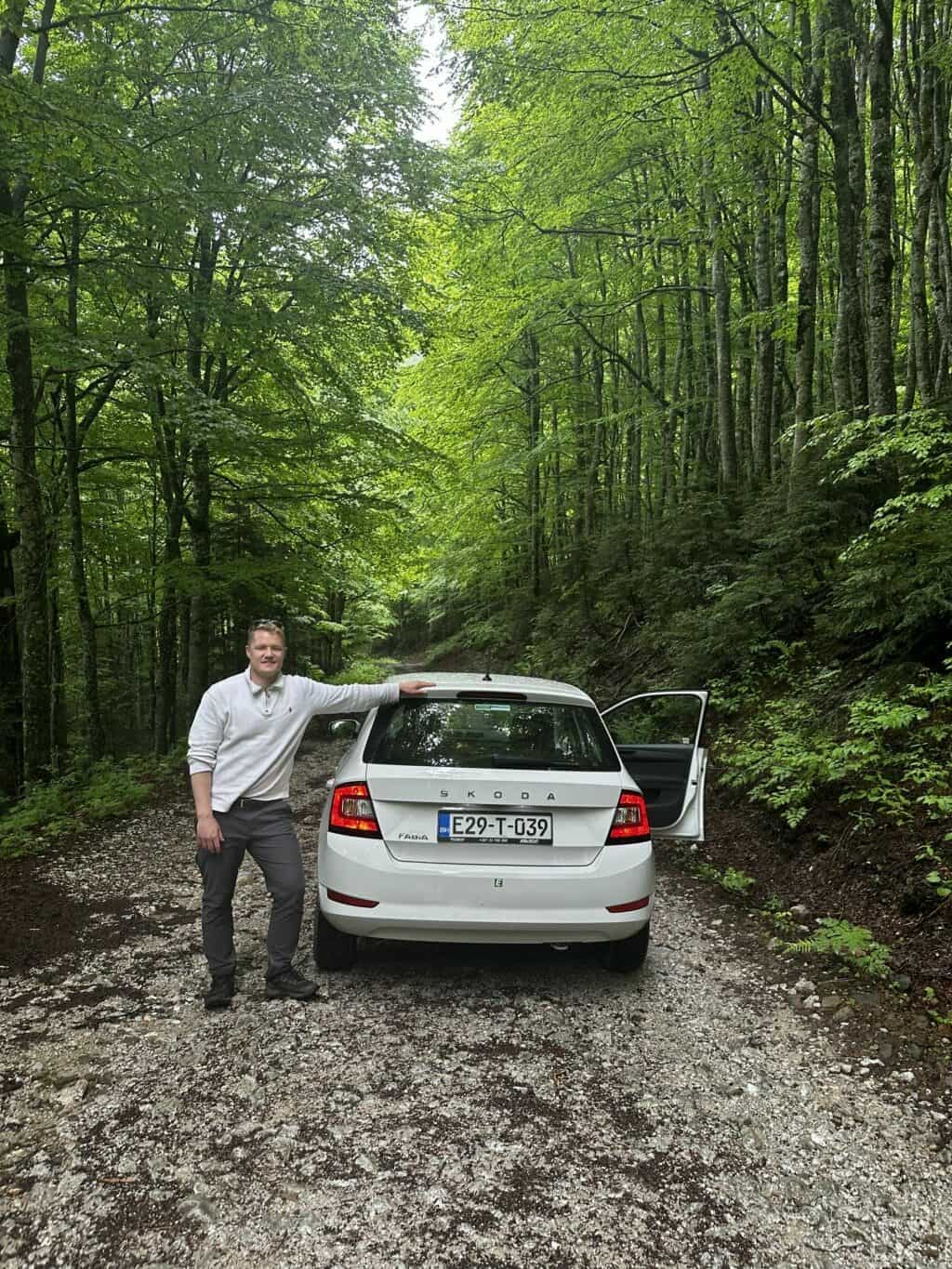
Are you thinking about traveling to Bosnia but concerned about how safe it is? You’re not alone. Safety is a top concern for anyone planning a trip, especially to a place they’re not familiar with. Having travelled to Bosnia multiple times and in all parts of the country, I feel that I have the confidence to voice my opinion on the topic.
Overall, Bosnia is considered a safe country for tourists to travel to. Most visits are trouble-free and for comparison, crime levels are fairly in line with that of any other European country.
Crime and ethnic tensions in Bosnia
Violent crimes against tourists are considered to be rare. Most issues tourists face are petty crimes like pickpocketing, especially in crowded areas or tourist spots. However, other crimes such as burglary and theft are not uncommon. Always make sure that you don’t leave your valuables in the car.
Bosnia has had a complex history involving the war in the 1990s, fought between three ethnic groups in the country (Muslim Bosniaks, Christian Orthodox Serbs, and Catholic Croats). While the country has come a long way since then, it’s still slowly rebuilding. The political climate is mostly stable now, but ethnic tensions can rise at times but are mostly centered around political events. I recommend that you stay updated on local news, however don’t worry too much about it. As soon as you arrive in the country you will realize that Bosnia is just as safe in terms of violent crime, as any other European country.
Landmines in Bosnia
One unique safety concern in Bosnia is the presence of landmines left over from the war in the 1990’s. It is estimates that roughly 2% of the total land is covered with landmines in Bosnia, making it the most mine-contaminated country in Europe. More than 600 people have died since the end of the war due to landmines and in 2021 a migrant died from a landmine explosion when trying to cross the Bosnian/Croatian border. Landmines are mostly in rural areas but can also be found near some towns and cities. The government is working to remove them, but the process is slow. Stick to well-trodden paths when hiking and avoid abandoned buildings or areas marked with warning signs and you will be find. The hiked to Trnovačko Jezeroto near Mt Maglic in Sutjeska National Park and that trail is well-marked and safe. Landmines are not a daily concern for most locals and tourists, but being aware of the risk can help you stay safe.

Health care and emergency services in Bosnia
Emergency services and healthcare are available but may not be up to the standards you’re used to. Me and my wife went to the hospital in the middle of the night in Sarajevo, due to food poisoning during my wife’s pregnancy. The facilities are a bit outdated, feeling a bit like the 80’s, but overall the help we received was professional and quick. In total, we visited 3 different medical facilities during the whole night and paid only about 15 euros for the whole “experience”. Luckily everything was fine. So in case you do get sick! Don’t worry, I have checked the medical facilities (at least in Sarajevo) and they are both approved and affordable!
Is it safe to drive in Bosnia?
Having rented and driven a car in Bosnia multiple times, I can say that I speak from experience when it comes to driving in Bosnia
Roads: Roads vary in quality. While main roads are generally ok, side roads can be in poor condition. Watch out for potholes and uneven surfaces. Also, instead of proper highways, most roads are two-lane roads with one lane in each direction making each trip take longer than you would expect when solely looking at the distance.
Mountain Roads: Important to keep in mind is that Bosnia is a mountainous country. If you are driving in the mountains, be prepared for narrow roads and sharp turns. Make sure your brakes and tires are in good condition. I once went up a mountain road in Sutjeska National Park, the distance was only 20 km but took more than 1 hour to go up due to the awful conditions of the road. However, as long as you stay on the main roads you shouldn’t face any problems.
Animals: In rural areas it’s not uncommon to find animals like cows or sheep on the road. So drive carefully and be ready to stop
Traffic Rules: Traffic laws are similar to those in most European countries, but they might not be followed strictly by everyone.
Speed Limits: Follow the speed limits. Cameras and police checks are common. Fines for speeding can be high.

Can I drink the tap water in Bosnia?
In most cities and towns in Bosnia, tap water is generally considered safe to drink. However, in rural areas, the quality of tap water can vary. If you’re unsure about the water quality, it’s better to drink bottled water. Some locals and tourists prefer to use a water filter or boil tap water as an extra precaution. Its always good ask a local for advice if you are unsure.
What should you avoid in Bosnia?
Avoid hiking in remote areas without a well-marked path due to the risk of unexploded landmines. Furthermore, the war in the 1990s is a sensitive topic for most people, and tensions between the three ethnic groups still exist today. Always know who you are talking to and avoid discussing the topic unless someone else brings it up. Apart from that using common sense and having respect for local customs, for example wearing appropriate clothing will get you a long way.
Should you go to Bosnia?
Yes absolutely, Bosnia is both a safe and exciting destination to visit in Europe. Even though the US State Department advises its citizens to exercise increased caution due to landmines and terrorism, the country is perfectly safe in my opinion to visit and in parity with that of other European countries.
